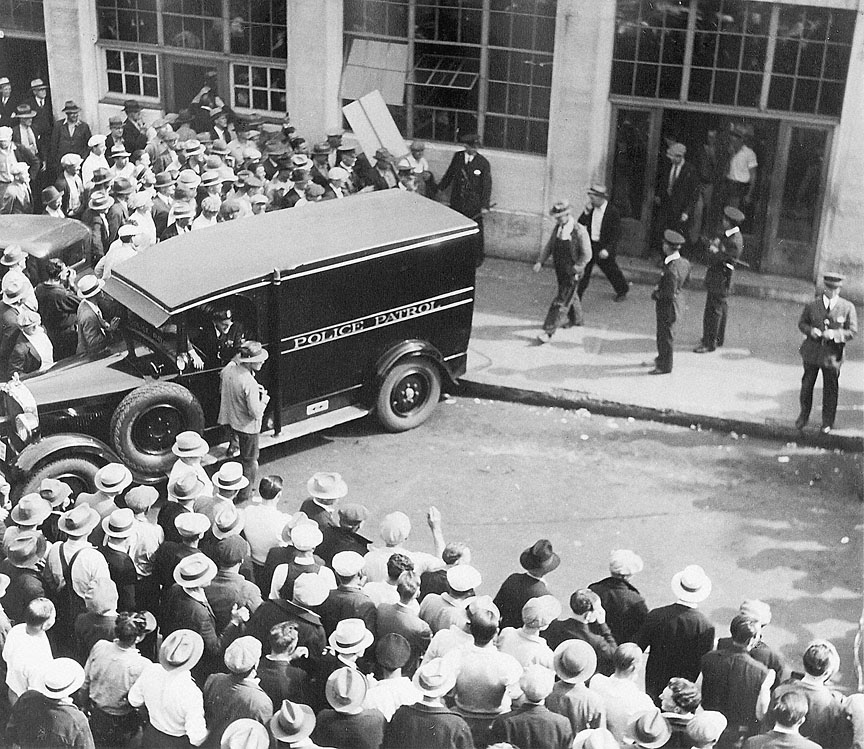- Catalog No. —
- OrHi 81704
- Date —
- 1934
- Era —
- 1921-1949 (Great Depression and World War II)
- Themes —
- Government, Law, and Politics, Transportation and Communication
- Credits —
- Oregon Historical Society
- Regions —
- Coast Columbia River Portland Metropolitan
- Author —
- Unknown
Longshoremen's Strike of 1934
This photograph of the 1934 waterfront strike shows Portland police escorting “scabs” through picket lines outside a hiring hall, a building used by companies to hire workers. During the nearly three-month walkout, striking longshoremen (workers who loaded and unloaded cargo ships) and their supporters tried to physically prevent strikebreakers from working on the docks by blocking company busses and using physical violence.
The strike reached well beyond Portland. On May 9, 1934, members of the International Longshoreman’s Association (ILA) walked off the job at all West Coast ports, successfully crippling maritime shipping. The longshoremen’s demands included union recognition, union-controlled hiring, reduced hours, and increased wages. Despite the number of people without jobs during the Great Depression, unemployed workers, farmers, and much of Portland’s working-class community supported the longshoremen. As a result, the shipowners and waterfront shipping companies had difficulty finding men to work during the strike.
The Portland police did not actively assist the companies in their efforts to protect and move strikebreakers until late June, disappointing business leaders who believed that police action would quickly end the strike. In response, members of the Portland Chamber of Commerce secretly organized and funded the Citizens Emergency League, a vigilante group who patrolled the city and tried to physically break through picket lines.
The strike ended on July 31 when employers agreed to negotiate with the ILA. The union’s biggest victory was getting control over the hiring process, but they also won shorter hours and higher pay.
Further Reading:
Bigelow, William and Norman Diamond. “Agitate, Educate, Organize: Portland, 1934.” Oregon Historical Quarterly 87, 1988: 5-29.
MacColl, E. Kimbark. The Growth of a City: Power and Politics in Portland, Oregon 1915-1950. Portland, Orego., 1979.
Written by Trudy Flores, Sarah Griffith, © Oregon Historical Society, 2002.
